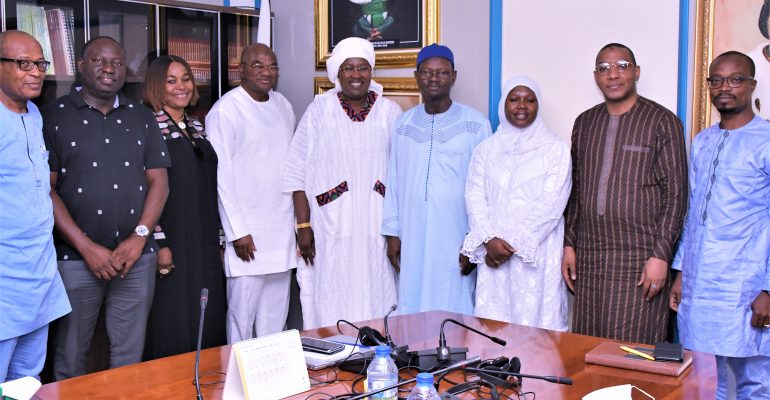ECOWAS Court working on programme to improve enforcement of its decisions by Member States
“Some States have been relying on their non-ratification of these Protocols as a basis for the non-enforcement of the decisions of the Court,” the court said on its website.

The ECOWAS Court of Justice says its working on a programme to improve on the enforcement of its decisions by Member states, the Chief Registrar of the Court, Dr. Yaouza Ouro-Sama has said.
Having been described as a problem, it is noted that only 34 per cent of the Court’s judgments are enforced by Member states, and that, only six member states had appointed National Authorities for the purpose of execution of those judgments.
The Court, therefore, intends to engage the Member States to improve on the level of ratification of the three regional instruments of the Court, that is the 1991 founding protocol, the 2005, and 2006 Supplementary Protocols. The execution of this, the court believes would contribute to the enforcement of its decisions by the Member States.
At a meeting with a delegation from the Dakar-based ECOWAS Gender Development Centre in Abuja on Friday, November 11, 2023, the Chief Registrar expressed concern at the level of ratification of these instruments, the only exception being the 1991 founding Protocol which has been ratified by all the Member States except Cape Verde and Guinea Bissau.
“Some States have been relying on their non-ratification of these Protocols as a basis for the non-enforcement of the decisions of the Court,” the court said on its website.
The programme according to Dr. Yaouza Ouro-Sama would ensure that at least three of such States ratify the Protocols outstanding against them each year.
ECOWAS Community Court of Justice
The jurisdiction of the ECOWAS Community Court of Justice was created pursuant to Article 9 of the 1991 Protocol which states that the court “shall ensure the observance of law and the principles of equity in the interpretation and application of the provisions of the Treaty.” This, therefore, makes the court the principal judicial organ of the ECOWAS community.
According to the Open Society Justice Initiative, the Court has ruled that this includes jurisdiction over human rights cases. This principle was codified by a 2005 ECOWAS Supplemental Protocol, which states that the Court has jurisdiction to hear human rights cases and expands the admissibility rules to include disputes between individuals and their own member states.
As a result of these amendments, the Court is thus four courts in one: an administrative tribunal for ECOWAS, a human rights court, a court of arbitration, and an Inter-State dispute resolution tribunal.
Decisions of the Court are final and binding under the 1991 Protocol. Member states and ECOWAS institutions must take all measures necessary to ensure the execution of the Court’s decision.
Under Article 24 of the 2005 Protocol, the execution of a judgment of the Court must be in the form of a Writ of Execution, and the Chief Registrar is required to submit this Writ to the member state.
The member state is then required to execute the judgment according to its national courts, and also inform the Court of the relevant authority.


